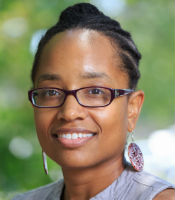
Aiming for Justice: Race, Reparations, and Right Paths
Feb 10-14, 2019
If you are seeking financial assistance to participate in this program, please click on the link for our Financial Assistance Application form, below. Do NOT register online.
Call Us for More Information!
610-566-4507, ext. 137
Financial aid may be available. If you are seeking funds to participate in this program, click to review and complete our Financial Assistance Application and a Pendle Hill staff member will follow-up with you shortly (please do NOT register online). Thank you for your interest.
While many dialogues on race tend to focus on the feelings and comfort of participants regarding a troubled past, very few workshops ask participants to contemplate the material benefits of that past. This workshop asks participants to lean into discomfort, to be reflexive, acknowledge the material benefits they have reaped and imagine what material justice might entail. The first full day will challenge participants to consider the distinction between justice-oriented giving and philanthropy. Day two will explore the opportunity costs of saving for retirement. Day three will examine how inheritance feeds into the continuation of a racial wealth gap. Participants will leave with an action plan and an accountability partner as part of an emerging community of people enacting race-based economic justice with care and transparency. White recipients of inherited forms of wealth are particularly encouraged to register.
Leader(s)
Melchor Hall is a Black feminist scholar-activist, raised in the Unitarian Universalist faith tradition and educated in Quaker schools. Born in the nation’s capital, with no Congressional voting representation, Melchor lives in a country where institutionalized forms of oppression undervalue her education (i.e., BA, math; MS, computer science; MA, international communication; PhD, international relations) and skills (i.e., computer programming, Spanish language, training expertise). Having relocated to the home of white liberalism (i.e., New England), she is reckoning with the uselessness of liberal attitudes and appearances when they are not coupled with radical (i.e., intended to address root causes) action.
